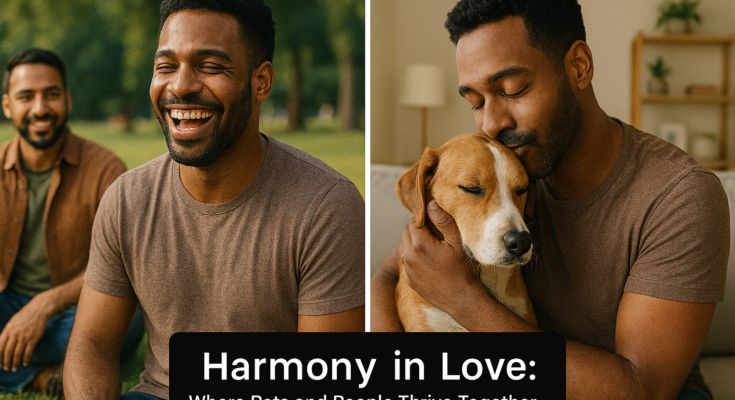The Joy and Balance of Pet Ownership: When Love Crosses into Obsession
Pets have a magical way of weaving themselves into our lives—soft purrs, wagging tails, and chirpy greetings that turn houses into homes. From the playful antics of kittens to the loyal gaze of a dog, these companions offer more than just company; they teach us about love, responsibility, and the simple joys of life. Yet, like any meaningful relationship, the bond with a pet thrives on balance. Let’s explore the heartwarming world of pet ownership and the fine line between healthy affection and overwhelming obsession.
The Healing Power of Pets: More Than Just Cuddles
Pets are nature’s therapists. Studies show that stroking a cat’s fur or walking a dog can lower stress hormones, ease anxiety, and even reduce blood pressure. For children, caring for a pet builds empathy and accountability—feeding a goldfish or cleaning a hamster’s cage becomes their first lesson in responsibility.
Popular Pets and Their Personalities:
- Cats: Independent yet affectionate, these low-maintenance companions thrive in cozy spaces.
- Dogs: Loyal and energetic, they demand daily walks but repay with unwavering devotion.
- Birds: From chatty parrots to melodic canaries, they bring music and vibrancy indoors.
- Fish: Serene and mesmerizing, a well-kept aquarium transforms rooms into tranquil retreats.
- Small Pets: Rabbits and hamsters, with their gentle natures, are perfect for teaching kids kindness.
But pet ownership isn’t all playtime and purrs. It requires commitment: regular vet visits, nutritious meals, and time for bonding. A pet isn’t a toy—it’s a living being that depends on you for its well-being.
When Love Turns to Obsession: Recognizing the Signs
For some, the bond with a pet becomes all-consuming. Obsessive pet love blurs boundaries, treating animals as substitutes for human relationships. Imagine canceling plans to stay home with a cat, dressing a dog in designer clothes, or spending excessive sums on gourmet pet treats while neglecting personal needs.
Roots of Over-Attachment:
- Loneliness: A pet fills the silence of an empty home, offering companionship without judgment.
- Anxiety or Depression: Animals provide unconditional support, easing emotional turmoil.
- Unfulfilled Parenthood: For those without children, pets may become surrogate “babies.”
- Social Media Influence: Viral videos of “spoiled” pets set unrealistic standards, fueling overindulgence.
Red Flags to Watch For:
- Neglecting friendships or family ties to prioritize a pet.
- Financial strain from overspending on pet luxuries.
- Panic or guilt when separated from the animal, even briefly.
- Viewing the pet as a primary source of emotional fulfillment.
Finding Harmony: Tips for a Balanced Pet Relationship
- Nurture Human Connections: Schedule coffee dates, join a club, or reconnect with old friends. Pets enrich lives but shouldn’t replace human interaction.
- Diversify Your Joy: Rediscover hobbies—painting, hiking, cooking—that don’t involve your pet. Balance keeps life vibrant.
- Set Gentle Boundaries: Resist treating pets like humans. A dog doesn’t need a wardrobe; a cat won’t mind sleeping in its own bed.
- Prioritize Mental Health: If attachment feels overwhelming, seek therapy. Understanding the roots of obsession can restore equilibrium.
- Embrace Life’s Layers: Invest in career goals, family time, and self-care. A fulfilled owner is better equipped to care for their pet.
- Practice Healthy Goodbyes: Short separations (a weekend trip, a busy workday) teach resilience—for both you and your pet.
A Bond That Enriches, Not Consumes
Pets are mirrors of our hearts—they reflect the love we give and return it tenfold. Yet, true care means respecting their needs and our own. A healthy relationship with a pet enhances life without overshadowing it. Whether you’re curled up with a purring cat or tossing a ball for an eager pup, remember: the greatest gift we offer our pets isn’t extravagance, but a balanced, joyful life shared together.



